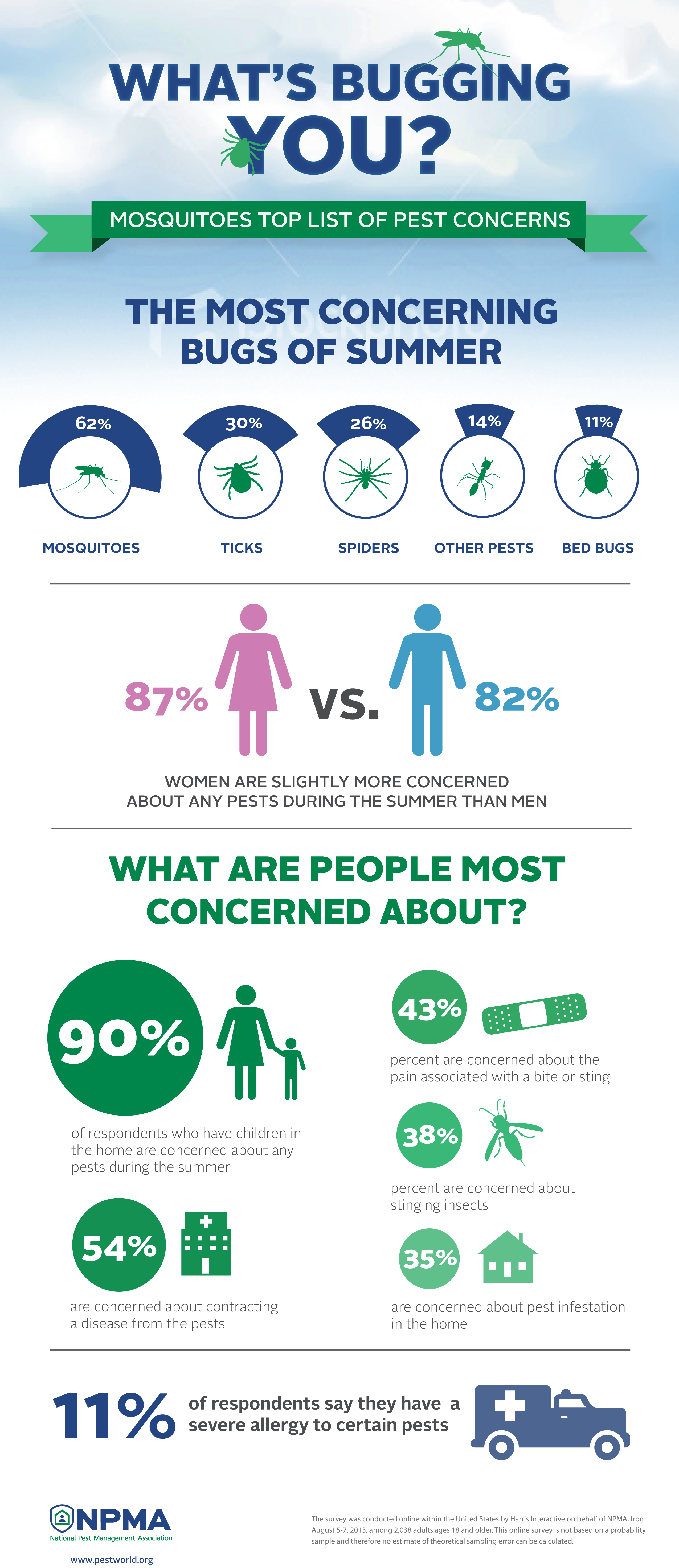Pest-Proofing Your Yard: Tips For Keeping Outdoor Insects Away
Pest-Proofing Your Yard: Tips For Keeping Outdoor Insects Away
Blog Article
Created By-Shaffer Qvist
Envision your garden as a refuge, a location of peace and elegance. Nonetheless, the visibility of outside bugs can quickly interrupt this picturesque image. Suppose there were straightforward yet reliable means to maintain these undesirable site visitors at bay and secure your yard oasis? By following a couple of useful suggestions and implementing all-natural methods, you can create a harmonious exterior room where your plants can thrive undisturbed.
Natural Parasite Deterrents
To keep parasites away from your yard naturally, plant fragrant natural herbs like mint and lavender. dead termites in house smelling plants not only include charm to your garden yet also act as reliable pest deterrents. Parasites like mosquitoes, flies, and also some garden-damaging insects are pushed back by the strong aromas emitted by these herbs. Simply putting them purposefully around your yard can aid produce an all-natural obstacle versus unwanted bugs.
Along with mint and lavender, take into consideration growing other natural herbs like rosemary, basil, and lemongrass to even more enhance your yard's pest-proofing abilities. These natural herbs not only act as natural repellents but likewise have actually the added benefit of serving in food preparation or crafting homemade remedies.
Strategic Plant Placement
Think about the format of your garden and the sorts of plants you need to strategically position them for maximum pest-proofing effectiveness.
Begin by grouping plants with comparable resistance to pests together. By doing this, you can develop an all-natural barrier that discourages insects from spreading out throughout your yard.
Furthermore, putting pest-repelling plants like marigolds, lavender, or mint near even more at risk plants can help shield them. Tall plants, such as sunflowers or corn, can act as a guard for shorter plants versus pests like bunnies or ground-dwelling pests.
Keep in mind to leave sufficient area in between plants to boost air blood circulation and decrease the danger of diseases that pests could carry.
Moreover, think about planting strong-smelling herbs like rosemary or basil near susceptible plants to confuse bugs' detects and make it harder for them to situate their targets.
Effective Pest Control Approaches
For combating yard parasites properly, applying a multi-faceted bug control strategy is crucial. Begin by encouraging all-natural predators like birds, ladybugs, and hoping mantises to help maintain insect populations in check. Presenting https://www.worldwildlife.org/stories/a-wildlife-rescue-project-protects-belize-s-threatened-seascapes-and-wildlife-one-manatee-at-a-time that attract these valuable bugs can assist in bug control. Furthermore, practicing natural mice control by getting rid of debris and weeds where pests could conceal can make your yard much less congenial to unwanted site visitors.
Think about making use of physical obstacles such as row cover fabrics or netting to protect susceptible plants from pests like caterpillars and birds. Using organic pesticides like neem oil or insecticidal soap can also work against particular bugs while being less harmful to useful insects and the environment. It's important to rotate your plants each season to prevent the buildup of parasite populations that target certain plants.
On kill big black ants examine your plants for indicators of parasite damage so you can act without delay. By integrating these methods and staying alert, you can efficiently control garden bugs and enjoy a successful, pest-free garden.
Verdict
So, there you have it - with the appropriate techniques, you can keep pesky exterior bugs away from your garden and aid your plants flourish.
Did you know that growing mint has been shown to ward off mosquitoes and various other insects, decreasing the need for hazardous pesticides by up to 60%?
By incorporating natural deterrents and smart planting techniques, you can develop a lovely and pest-resistant garden sanctuary for you to delight in.
